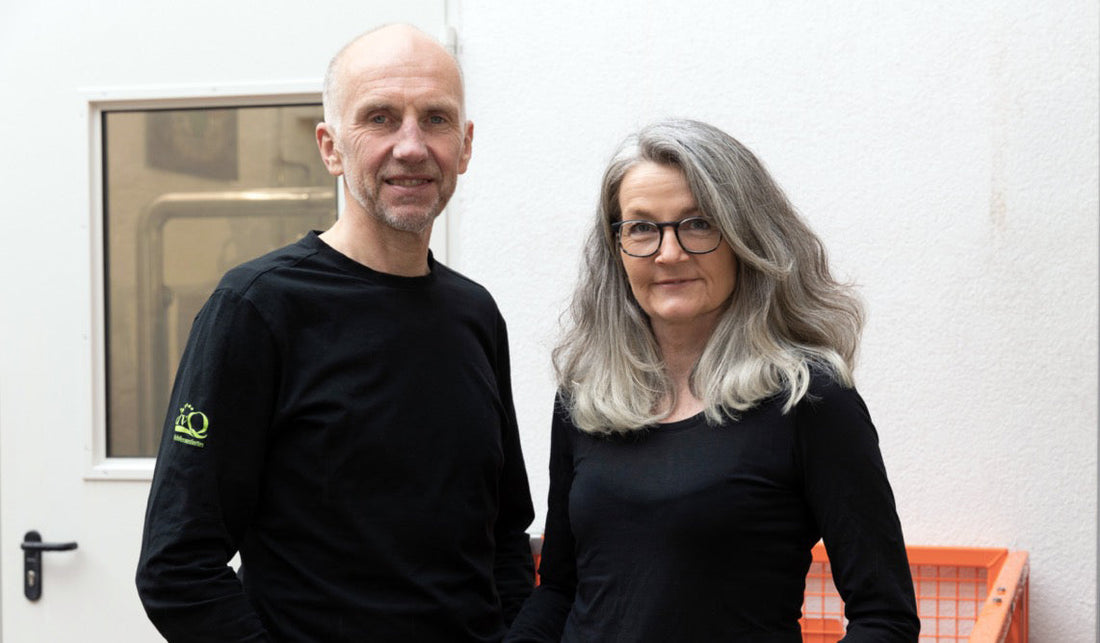
livQ in the research brewery - where new trends meet previous innovations.
Where new trends meet old traditions
In the research brewery, livQ brings fermentation back into the time-honored wallsVinegar, beer and sauerkraut all have one thing in common. They are not only found in grandma's pantry, but are also all created through fermentation. The food trend is more current than ever, but the fermentation of food is actually one of the oldest techniques in the world and therefore offers a lot of history.
The fermentation process has been known in all parts of the world for thousands of years and numerous fermented foods can still be found on menus all over the world today. From kimchi to spirits to delicacies that take some getting used to such as surströmming or thousand-year-old eggs - none of this would be possible without fermentation.
But it's not just chefs who are getting creative in order to create new flavors and consistencies through fermentation. The health sector has also discovered lactic acid fermentation. The Munich-based company livQ, for example, uses fermentation to produce its organic essences. Packed with all the power of fermented plant substances, the livQ organic essence has become an indispensable part of many health-conscious customers' diets.
New home with tradition
It was therefore only a matter of time before the old production rooms became too small for livQ and a new home was needed. In the walls of the research brewery, everything that belongs together finally came together. This is where Gottfried Jakob once worked on better production and fermentation processes.
The electrical and mechanical engineer dedicated his life to researching beer. In 1909 he founded the "Special Laboratory for Brewery and Malthouse Operational Control" in Munich. He shared his knowledge of the physiological processes involved in brewing and malting with the professional world in publications and acquired numerous patents.
A place where inventiveness, thirst for knowledge and the soul of fermentation breathe from the walls.
In the historic rooms from 1936, which livQ has carefully adapted to modern requirements, the fermentation specialist has been producing its organic essences and primary yeasts since 2021. And beer is also being brewed there again. This closes the circle that Gottfried Jakob once started.
Beer is also a fermentation product. In the Middle Ages, it was the drink for men, women and children, as the available water was not drinkable. Every housewife had her own recipe and beer was brewed with all kinds of ingredients. Also known as liquid bread, beer has many valuable ingredients and the water of that time was only made drinkable and shelf-stable by brewing. During the brewing of beer, through fermentation, pathogens in the water were killed. Fresh beer in particular used to contain hardly any alcohol and was good to drink. Crops were also fermented, making them shelf-stable and easier to use.
From necessity to food trend
What was once essential for survival has now become a popular health trend. "Good" microorganisms transform food during fermentation so that new nutrients are created and the existing ones can be better utilized by the body. Fermented foods can therefore be useful for a balanced and healthy diet - and thus contribute to greater well-being.
A balanced diet is essential for the body's processes to run normally and for all systems to function optimally. The intake of essential vitamins, minerals, proteins and fatty acids is particularly important. And this is precisely where the advantage of fermentation lies. It makes the abundant valuable substances from nuts, fruits and vegetables more easily accessible to the human organism.
These natural processes require time, attention and the necessary knowledge. Werner Schuegraf is responsible for this. As an engineer for brewing and beverage technology and an experienced brewer, he is very familiar with the secrets of fermentation - and is now implementing these with livQ in the research brewery, where new trends meet previous innovations.

